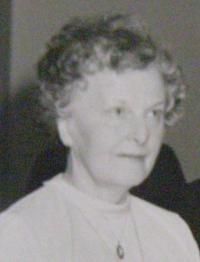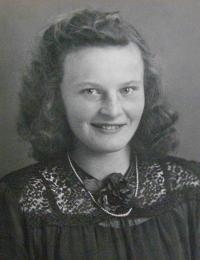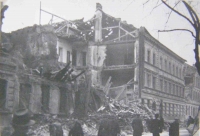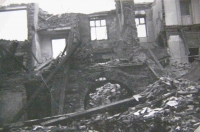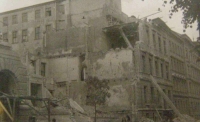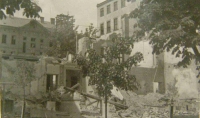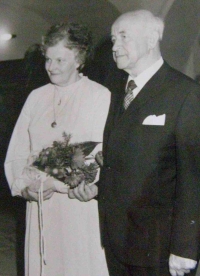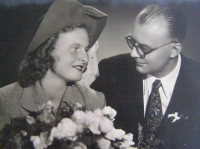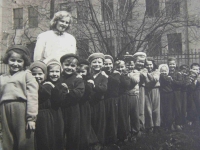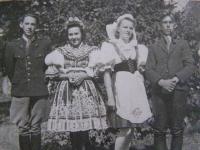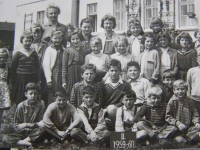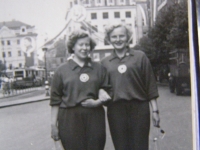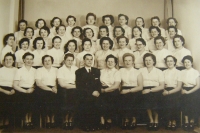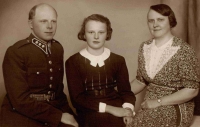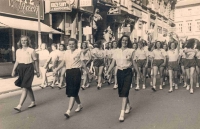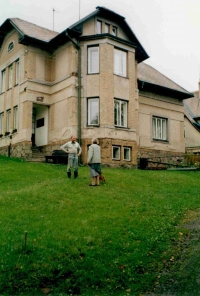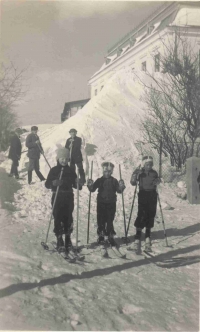I am a Sokol and I will be a Sokol and I honour the principle

Download image
Slávka Netrvalová, née Matušková, was born on May 31, 1925 in Oldřichov in Hranice (part of Hrádek Nad Nisou in the Liberec district) to Antonie Matušková, née Vlachová, from Police nad Metují, and to Jan Matuška from Dobruška. Her father was an inspector of the Finance Guard (part of the State Defense Guard battalion) and until the German takeover of the Sudetenland she thus spent a large portion of her childhood in the borderlands, in Deštné v Orlických horách and in Hanšpach (present-day Lipová in the Šluknov hook). After the declaration of the Protectorate Bohemia and Moravia she lived with her parents in Bystré u Poličky and in Pelhřimov. During World War Two she studied at Vesna school (Masaryk’s State Special Pedagogical Institute for Education of Female Teachers of Vocational Schools for Women’s Professions). The house in which she lived in a rented room got hit on November 20, 1944 during the bombardment of Brno, and Slávka then stayed with nuns until her graduation from the school. She completed her studies in 1946 and then she returned to Bohemia to her parents and she became a teacher at the household school in Česká Lípa. In February 1948 she was interrogated in relation to her statements against the minister Zdeněk Nejedlý. Slávka, who was a long-time Sokol member, participated in the last All-Sokol Rally in Prague in 1948. Following the purges, she was expelled from Sokol. However, she still continued exercising -in TJ Dolní Poustevna for a short time and later in Nový Bor. In 1948 she married JUDr. Karel Bulíř and their only daughter Bohuslava was born in 1949. In 1952 they moved into a small house in Okrouhlá. In 1955 she participated in the first post war Spartakiade sports rally. Slávka worked as a teacher in kindergarten in Nový Bor and at the elementary school in Arnultovice and in Polevsko. She was a long time member of the Choir of North Bohemian Teachers and the chairwoman of the Red Cross organization in Okrouhlá and she also served as a lecturer for the Red Cross. In 1955 she took part in the performance ‘Sower’ the Spartakiade and in 1960, sixteen women from Okrouhlá got all the way to the Strahov stadium in Prague. In 1973 she divorced her husband JUDr. Bulíř and in 1982 she married PhDr. Ota Netrval who had served in the cabinet of Jan Masaryk, had been in the Czechoslovak military mission in Korea in 1953 and who had served at the embassy in Sweden and in West Berlin. Due to his support for Dubček, in 1969 he was recalled back to the ministry and he then kept working there until his retirement. Slávka still lives in Okrouhlá and she enjoys good health.
